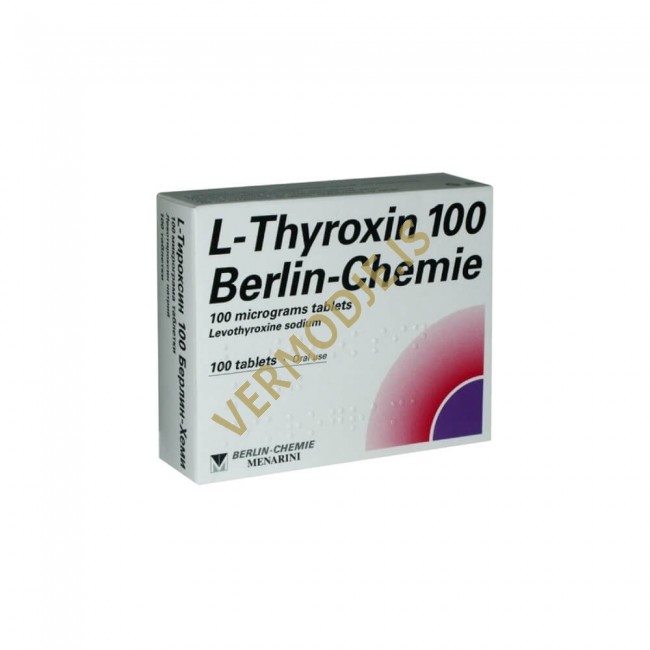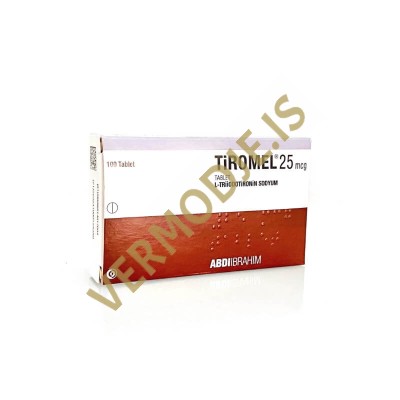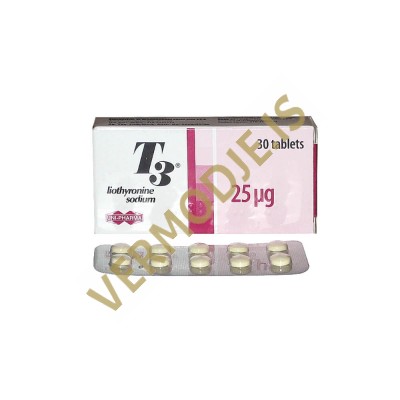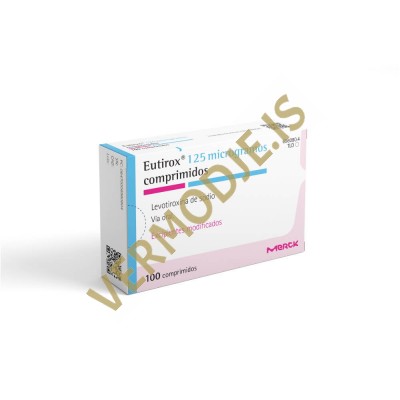T4 L Thyroxin (Levothyroxine Sodium) - 100 tabs (100mcg/tab)

- Stock: In Stock
- Model: Levothyroxine Sodium
What is T4 - Thyroxine, also known as T4, is a thyroid hormone. It is in the inactive form and most of it is converted to the active form T3. Thyroxine is produced by the binding of iodine atoms to the ring structures of tyrosine residues of Thyroglobulin.
Levothyroxine is a pharmaceutically synthesized, synthetic Thyroxine. Levothyroxine is used for the treatment of thyroid hormone deficiency, also for the prevention of certain types of thyroid tumors.
Functions of Thyroid Hormones:
As already stated above, Thyroxine (T4) is a prehormone of Triiodothyronine (T3), which means that T4 is processed to T3. T4 sole function is to regulate T3 levels. So T3 has the following functions:
- Controls all metabolism.
- Acts on brain activity.
- Affects emotional state and mood.
- Increases carbohydrate absorption.
- Regulates heart rhythm.
- Increases circulating blood volume.
- Regulates respiratory rate.
- Supports normal bone development.
- Inhibits the secretion of prolactin.
- Supports normal functioning of male and female reproductive functions.
As you understand, Thyroid Hormones affect overall health, making them the most important hormones.
Thyroid Hormone Production:
The process that takes place to synthesize thyroid hormones is complex and few would understand its very detailed explanation. Therefore, we will explain it in two more understandable ways so that the reader chooses the more understandable one.
Simple explanation:
A simple explanation of how the thyroid hormones T3 and T4 are produced.
The hypothalamus secretes thyrotropin releasing hormone (TRH) which triggers the release of thyroid stimulating hormone (TSH) from the anterior pituitary lobe (Adenohypophysis). TSH in turn stimulates all thyroid functions - iodine accumulation, formation and production of T3 (Triiodothyronine) and T4 (Thyroxine) etc.
Increasing the levels of these hormones in the blood results in a feedback loop to the hypothalamus and anterior pituitary gland to suppress further signaling for production. With elevated T3 and T4 levels, the production of TRH and TSH is reduced, which also reduces the secretion of T3 and T4. When T3 and T4 levels are decreased, production of TSH by the pituitary is increased, which directly stimulates the thyroid.
/* Approximately 100 ug of thyroid hormone is secreted by the gland each day, mostly as T4 and with about 10% as T3. In theory, eighty percent of T4 undergoes conversion to the more active T3 in the liver and kidneys, as well as to small amounts of reverse T3 (rT3). T3 is ten times more active than T4, and rT3 has little or no biological activity. */
Trade Name:
T4 L Thyroxin
Active Ingredient:
Levothyroxine Sodium
Manufacturer:
BERLIN-CHEMIE
Type:
Oral
Package Contains:
100 tabs x 100 mcg
100% Original Product



